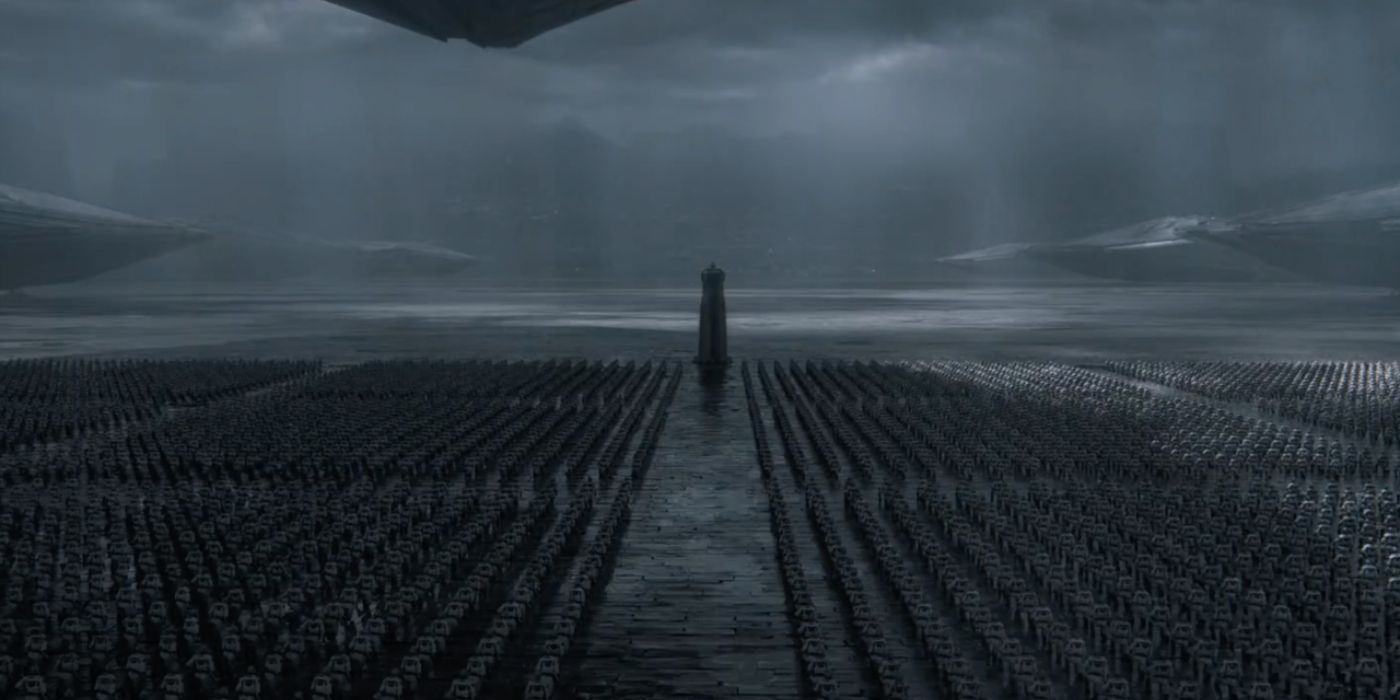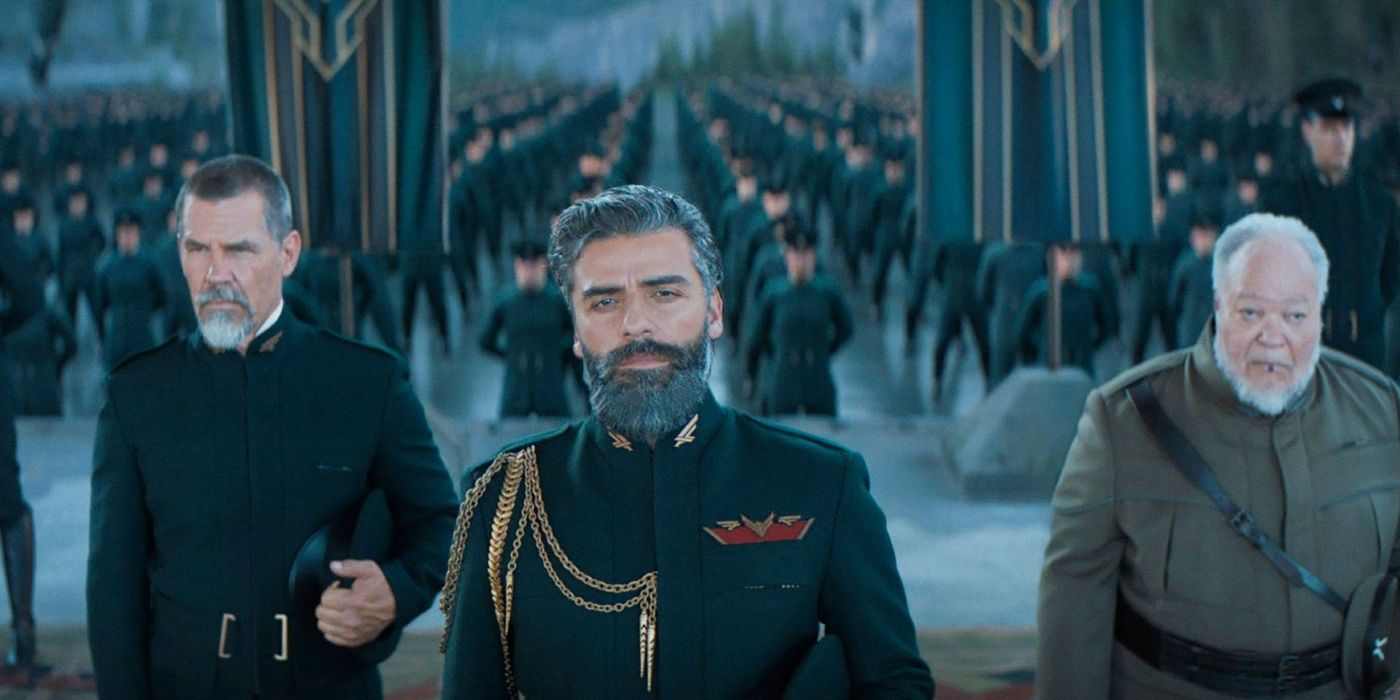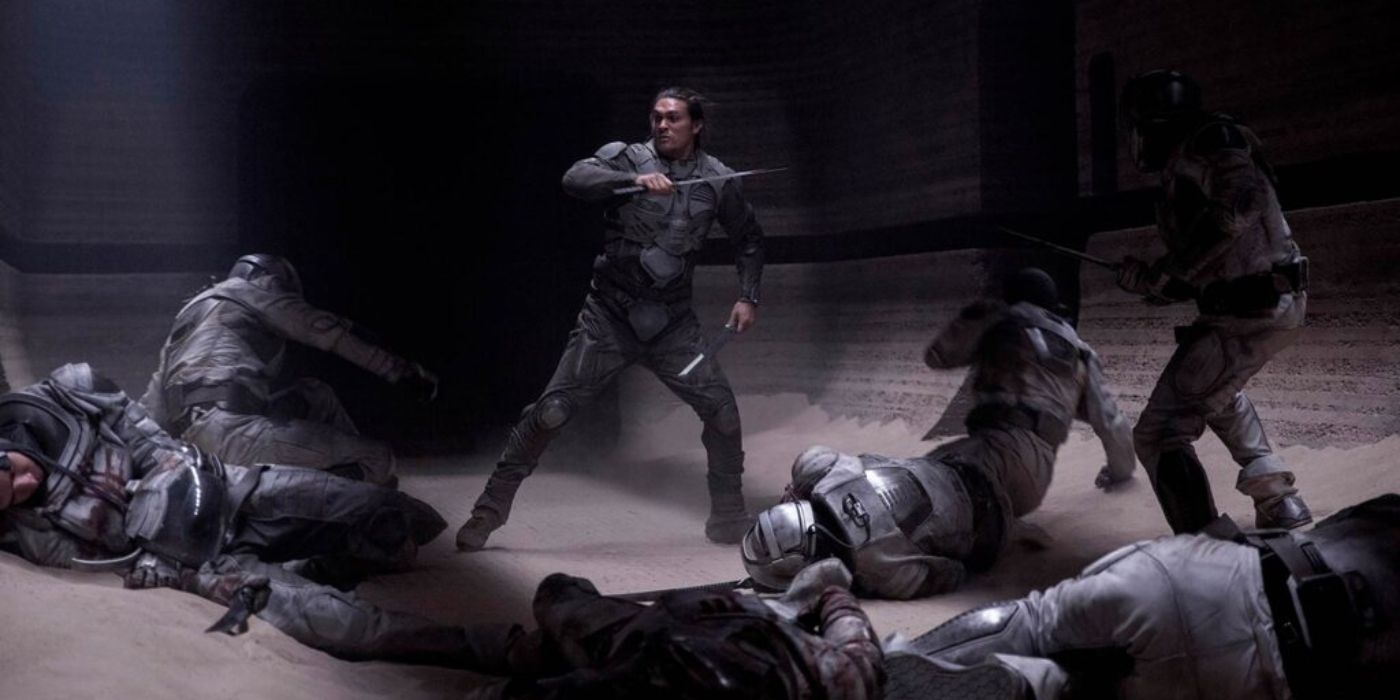
WARNING: The following contains spoilers for Dune, now playing in theaters and on HBO Max
Dune is a visually epic film. So it makes sense that its biggest sequence would be a large-scale assault from the ground and air. But instead, that epic scope ends up working against the filmmakers.
For all its ambitions, Dune doesn't quite land all of its sequences. A particularly notable one involves the fall of House of Atreides to the forces of House Harkonnen -- which could be an epic tragedy and instead feels like the worst impulses of CGI personified.

After being given control of the valuable but dangerous world of Arrakis, the house Atreides finds itself targeted by the former rulers (and their largest rivals in the universe), House Harkonnen. This comes to fruition thanks to a massive attack carried out by Harkonnen's forces and their allies from the empire. The battle is a massive spectacle, with armies rushing to battle against each other in the night against the backdrop of ships arriving and bombarding the city from above. In the chaos, Leto (Oscar Isaac) is captured and ultimately dies trying to kill Baron Harkonnen (Stellan Skarsgård). Meanwhile, Gurney (Josh Brolin) charges into battle, Duncan (Jason Mamoa) retreats, and Leto's family is captured and sent to be stranded in the desert.
In theory, this is the massive plot shift of Dune, which only covers the first half of the original sci-fi classic. This is where Paul is forced to fully embrace his destiny and development into a man that can avenge his family and stand against House Harkonnen. It's also where Paul (Timothée Chalamet) -- and the audience -- lose Leto, who has been portrayed as a just and fair ruler up to this point. It's the end of stability, as Paul knows it, and should be genuinely heartbreaking for the audience to witness. But the problem is that it's not really all that effective on an emotional level. Like much of the film, director Denis Villeneuve is seemingly concerned with the film's visuals instead of the emotional impact of the story. So the battle looks engaging but quickly becomes repetitive and almost unemotional.

Dune is a film that ultimately has to gloss over many character beats and elements that leave the characters ultimately feeling fairly basic. At its best, the film hints beyond the surface-level bonds that bind Paul with his friends and family. But the massive attack on their home, while visually engaging, ultimately feels empty because of the lack of personal stakes in the action on screen. Faceless armies run into each other at high speeds while explosions light up the skies. It's a striking visual, but by the fifth time it happens in quick succession -- with no real cause to care for the armies outside the reduced army Paul now has to call upon -- makes it a somewhat hollow experience. As fantasy films have become more epic, the habit of throwing massive CGI armies at each other has become more common too.
But what films like The Lord of the Rings: Return of the King and Avengers: Endgame get right about these moments is the importance of making the chaos matter on a personal scale by filling them with characters the audience cares about and keeping the scope trained on them. It allows the audience to care about the fight, as opposed to Dune, where the fall of Atreides feels disconnected from the narrative and the character's personal actions during the battle. The fight is instead fought by Gurney and his nameless allies, disappearing in a cloud of CGI characters running into each other.
Compare this to Duncan's far more precise and focused fall later in the film, which finds a way to infuse the big action sequence with character, personal stakes and genuine loss at his eventual death -- and it works far better as a result. Dune reduces Paul, Leto and Rebecca to props in what should be a vitally important and tense sequence for them all as characters. Dune falls for the trap of throwing lots of expensive figures at one another and hoping that the spectacle is enough to stir the audience. When in reality, having a tighter focus on the actual House Atreides could have made the collapse of their power base the emotional lynchpin of the film.
0 Comments